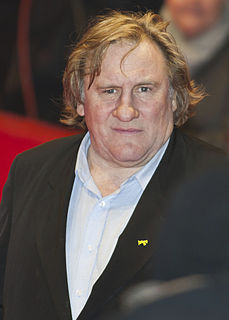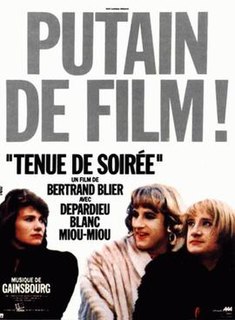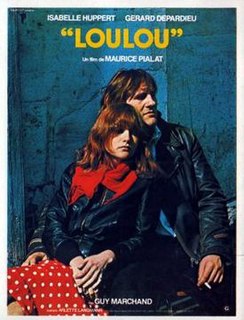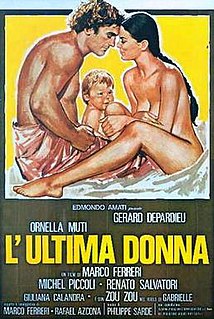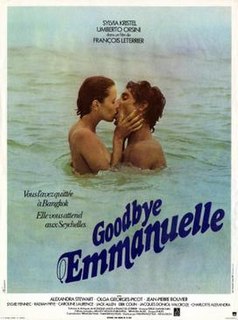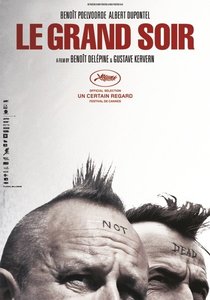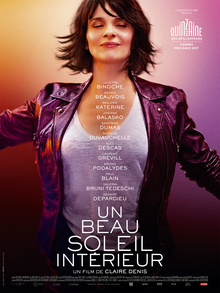| Rene the Cane | |
|---|---|
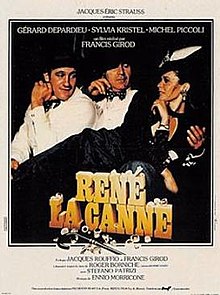 | |
| Directed by | Francis Girod |
| Written by | Francis Girod Jacques Rouffio |
| Starring | Gérard Depardieu |
| Music by | Ennio Morricone |
| Cinematography | Aldo Tonti |
Release date |
|
| Language | French |
Rene the Cane (French : René la Canne, Italian : Tre simpatiche carogne) is a 1977 French-Italian crime film directed by Francis Girod and starring Sylvia Kristel and Gérard Depardieu.

French is a Romance language of the Indo-European family. It descended from the Vulgar Latin of the Roman Empire, as did all Romance languages. French evolved from Gallo-Romance, the spoken Latin in Gaul, and more specifically in Northern Gaul. Its closest relatives are the other langues d'oïl—languages historically spoken in northern France and in southern Belgium, which French (Francien) has largely supplanted. French was also influenced by native Celtic languages of Northern Roman Gaul like Gallia Belgica and by the (Germanic) Frankish language of the post-Roman Frankish invaders. Today, owing to France's past overseas expansion, there are numerous French-based creole languages, most notably Haitian Creole. A French-speaking person or nation may be referred to as Francophone in both English and French.

Italian is a Romance language of the Indo-European language family. Italian, together with Sardinian, is by most measures the closest language to Vulgar Latin of the Romance languages. Italian is an official language in Italy, Switzerland, San Marino and Vatican City. It has an official minority status in western Istria. It formerly had official status in Albania, Malta, Monaco, Montenegro (Kotor) and Greece, and is generally understood in Corsica and Savoie. It also used to be an official language in the former Italian East Africa and Italian North Africa, where it plays a significant role in various sectors. Italian is also spoken by large expatriate communities in the Americas and Australia. Many speakers of Italian are native bilinguals of both standardized Italian and other regional languages.
Crime films, in the broadest sense, are a cinematic genre inspired by and analogous to the crime fiction literary genre. Films of this genre generally involve various aspects of crime and its detection. Stylistically, the genre may overlap and combine with many other genres, such as drama or gangster film, but also include comedy, and, in turn, is divided into many sub-genres, such as mystery, suspense or noir.
Contents
It was released in France in 1977 and recorded admissions of 534,714. [1]
